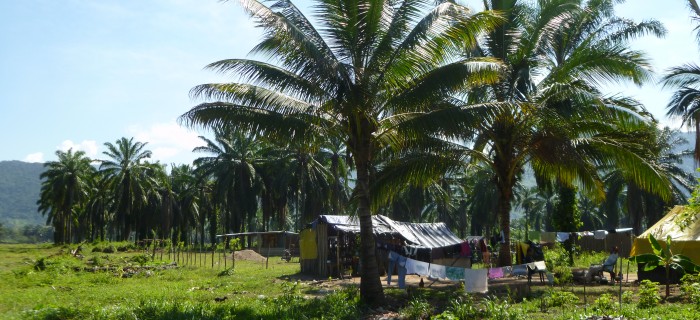Governing the Global Land Grab: Competing political tendencies
June 2013, Land & Sovereignty Brief No. 2
Reports of land grabbing from various parts of the world continue to come in: land grabbing for agriculture to produce food, feed, biofuels and other industrial products; “green grabbing” or land grabbing for environmental ends; and water grabbing for the irrigation of large-scale monocultures, hydroelectricity and other corporate uses. Understanding contemporary land grabs requires grasping the changing context in which they occur: the emergence of “flex crops”, the rise of BRICS and middle-income countries, and the re-valued role of nation-states. This brief provides crucial context for understanding land grabbing and discusses three political tendencies in global land governance. In order for transnational movements to carry out more effective advocacy campaigns against land grabbing and influence global governance, they should understand these competing tendencies, and reassess and adjust their political framework.
This is the second brief in the Land & Sovereignty in the Americas series, co-published by Food First and the Transnational Institute.
Understanding the political tendencies in global land governance is critical if transnational movements are to carry out effective advocacy campaigns against land grabbing.
About the series
The Land & Sovereignty in the Americas series pulls together research and analysis from activists and scholars working to understand and halt the alarming trend in “land grabbing”—from rural Brazil and Central America to US cities like Oakland and Detroit—and to support rural and urban communities in their efforts to protect their lands as the basis for self-determination, food justice and food sovereignty. The series—which includes short issue briefs and books—is a project of the Land & Sovereignty in the Americas (LSA) activist-researcher collective, coordinated by Food First. For media inquiries about this series, or to arrange an interview with an author, please contact land@foodfirst.org or call (510) 654-4400, ext. 234.
About the authors
Saturnino M. Borras Jr. is Associate Professor at the International Institute of Social Studies (ISS) in The Hague, a fellow of TNI and Food First, and Adjunct Professor at the College of Humanities and Development (COHD) of China Agricultural University (CAU) in Beijing. He is co-coordinator of the Land Deal Politics Initiatives (LDPI; www.iss.nl/ldpi) which is an international network of academics doing research on global land grabbing.
Stay in the loop with Food First!
Get our independent analysis, research, and other publications you care about to your inbox for free!
Sign up today!Chunyu Wang is Associate Professor at the College of Humanities and Development of China Agricultural University in Beijing and was a China Scholarship Council postdoctoral fellow at International Institute of Social Studies (2011 – 2012) when she carried out her research on land grabbing and the politics of the negotiations on the Voluntary Guidelines on Land Tenure in the UN Committee for Food Security in Rome.
Jennifer C. Franco is Coordinator of the Agrarian Justice Program of TNI and Adjunct Professor at the College of Humanities and Development (COHD) of China Agricultural University (CAU) in Beijing.


 Help Food First to continue growing an informed, transformative, and flourishing food movement.
Help Food First to continue growing an informed, transformative, and flourishing food movement.




